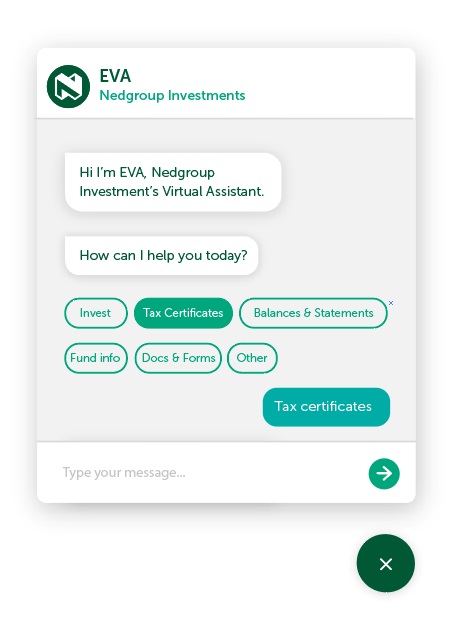Imagine this: in 2017, it took only two months for Accenture Labs to help Biogen come up with a quantum-enabled application comparing molecules for drug discovery acceleration.
We find this case one of the most astonishing examples of the possibilities IT consulting can unlock for businesses.
However, at Visartech, we often face biased stereotypes and assumptions about this industry. At the other extreme, we hear about many consulting engagements that fail even if both parties start on the right foot and have the most righteous intentions.
Hence let’s take a closer look at business technology consulting, its ins and outs, and its pros and cons against other similar services.
What is IT Consulting
Emerging technologies drive businesses forward: they increase people’s productivity, process effectiveness, and, eventually, profitability. However, they also constantly change and improve, so taking proper advantage of them appears to be a non-trivial task.
Yes, as a business owner, you can easily hire tech standalone experts or specialized firms to:
- help you maintain your IT infrastructure,
- keep your sensitive data secure,
- provide system administration services to your employees.
However, business technology consulting is much more than that.
Companies offering high-tech consulting services solve such tasks as expense reduction, business process improvement, and even digital transformation strategy development.
Why Hire a Tech Consulting Firm
Wonder why may need technology consulting services?

Here’s a list of activities a tech consulting firm can perform for you:
- research, studying, and brainstorming,
- business strategy optimization,
- digital technology adoption/migration cost evaluation,
- implementation planning,
- application development and delivery,
- cloud service implementation,
- tech specification creation,
- quality assurance,
- negotiations with new tech partners,
- and tech consulting itself.
Because the list is so long and broad, only companies with a solid reputation and business experience in your industry will be able and eager to offer you proper tech consulting services.
If you need help in any of these activities, you can contact a tech consulting firm, but we believe such firms shouldn’t be hired for the single purpose of doing a task you don’t have the resources or time to do.
Read also: How to Save Money on a Web Project for Businesses
Learn how to select the best tech stack for your web application
Being able to offer a wide range of tech consulting services—from tech audit to digital strategy development—digital technology consulting firms focus on one single business goal. And that changes the idea of how to build a fruitful partnership with them.
What Tech Consulting Companies Are Actually For?
While the number of reasons businesses can turn to such companies is vast, in the end, it’s about process optimization and, ultimately, digital growth.

Sometimes, this growth demands more efficient use of already adopted technologies. For instance, in 2013, Deloitte helped Yamaha take better advantage of Salesforce. In seven weeks, their support team started using an improved, consolidated customer profile system and improved their customer service.
Often, a tech advisor firm can offer their know-how to address specific productivity bottlenecks stopping businesses from further growth. Maybe you have heard of IBM’s Watson, an AI-powered data analytics tool that they have used to, say, help Woodside Energy, an Australian oil and gas company, create a digital archive of decades of docs and logs and thus preserve their institutional wisdom.
And then digital growth might require:
- reviewing an existing business model,
- moving high-technology manufacturing to another country,
- finding a way of coping with a market or industry crisis,
- reorganizing back-offices.
And a digital consulting firm can assist with that as well. From an information technology standpoint and to help you grow, of course.
So to make the most out of technology consulting services, it’s important to keep one single idea in your head from the very beginning:
Formulate a business problem you want to solve with your technology consulting firm, not a technical solution you want it to help you implement.
Only then you’ll be able to get full advantage of the potential a tech consulting company has to offer and let it generate innovative ideas for growth.
Is There a Demand for IT Consulting Services?
Although the technology advisory services sound very promising and inspiring, it might seem that most companies get hard knocks in all things digital alone. So is there a real demand for tech consulting services?
Let’s start with dropping a few source-based facts:

- In the US alone, there are 480,000+ technology consulting businesses currently operating, and 2.2 mln people are employed in this industry. [Ibisworld]
- In 2022, the global market was evaluated at USD 273.13 billion and expected to grow 12.1% from 2023 to 2030. [Grand View Research]
- Due to COVID-19, in 2020 many tech systems consulting contracts have been paused or canceled, so the global market had contracted by 14% and caused the top players to fire hundreds of employees. [Financial Review and Information Age] But on the other side, polls show the top budget need for businesses in 2022 is innovations as it’s the most perspective way to cope with the crisis and grow. And technology strategy consulting is the only shortcut for it. [Comptia]
- The pandemic also positively affected industries relying heavily on online, as people now spend 10-30% more of their time and money online, leading to the growth of eCommerce and other online businesses and the need for other businesses to take advantage of that. [Search Engine Land]
So either going up or down, the demand for tech consulting services has been and remains very high.
IT Consulting Market Overview
So let’s imagine you want to take advantage of the tech consulting services. Exploring the market, you’ll notice there are three kinds of consultants:
- Individual experts are ready to share their expertise. In most cases, they can provide you with digital consulting services. This way you will have a better understanding of your problem and ways to solve it. It’s the best option to figure out the growth opportunities you have with your resources.
- Small and middle-sized firms. Often, they have a deep focus and unique experience in a specific industry. Apart from being able to share their knowledge, they have enough resources to perform the research and investigation and then augment your team to make necessary changes in your organization as fast as possible. It’s the best option when your business urgently needs to get the competitive advantage of innovations to stay on the market and outplay the competitors.
- Top market players. Having lots of departments, they are able to lend a hand in any business-related activity, often offering technology solutions for common problems they have developed and polished. This is a way to go if you want to optimize your workflow and/or your company is also huge and you need someone who knows how to implement changes in your kind of organization.
But if we drop things like your budget and size, only top market players are always in the public eye.

Even from the examples above, it’s easy to conclude that only huge firms like IBM, Microsoft, or Deloitte can help you with digital consulting and growth. They have their technical know-how, decades-long experience, and lots of experts of all kinds. So why bother paying attention to small firms?
Does Bigger Mean Better in The Technology Consulting Industry?
The answer lies in the reason why those small companies were established or switched to offering technology strategy consulting services. When new firms enter the market, they already have unique expertise to offer. You can’t just become a technology consultant out of the blue.
Visartech’s case is one of the most common ones: we got a lot of experience shaping and building digital products for our clients in a few industries of our choice and at some point, they started recommending us to their colleagues and partners as tech consultants and innovation advisors.
So while top tech consulting firms assist huge clients in optimizing their expenses, digitalizing their archives, and making the most of the tech they’re already using, smaller tech advisor firms are eager to help striving companies disrupt the market with nontraditional approaches and hack the industry using innovative technologies. Often, theу expertise and professional interest of such firms can be so laser-focused that nobody else on the market can offer it.
We at Visartech have a long-lasting project called SkyTrak, where we applied our game development and UI/UX expertise for the golf simulation platform to help golf players meet all their needs. As a result of our tech consulting services, the software ecosystem got the “Best it Golf” award and watched 35% userbase growth. How many more technology consulting firms on the market have experience in building an award-winning sports app?
Another reason why there’s no direct dependency between the size of the high-tech consulting company and the quality of services it offers is its division into classes. Bigger companies usually prefer to pack their tech expertise into strategy or implementation consulting services. That means they either want to come up with a new holistic approach for your business (without helping you to switch to it) or to solve your problem in the ways that have been already tried and used.
For instance, when in 2016 Nedbank wanted to improve its customer engagement, it asked Microsoft for technology advisory services. Microsoft, in turn, made research and figured out the best solution would be a messenger chatbot, and of course, they leveraged their own NLP engine, LUIS.AI, to make it.
While the implementation was a huge success (the chatbot handled 80% of inquiries at just 10% of the cost of live agents), Microsoft was artificially limited in looking for possible solutions as they used their own and already existing technologies to help their clients. Maybe an alternate engine would bring more benefits, such as lower app development costs or quicker time-to-market.

Smaller companies take the niche of industry specialists instead. They provide more flexibility and have a broader view of possible solutions. Being more independent, they are usually more ambitious and growth-driven, which is a perfect choice for companies with similar motivations and business goals.
7 Benefits of IT Consulting
Now, we’ve talked about the services tech consulting firms offer and what for, but what are the actual benefits of partnering with them?
It often depends on the industry you’re in, but here are the most common benefits our clients report in their feedback:
- Cost optimization. A tech consulting firm can help you cut your maintenance costs and control operating expenses by optimizing the way your infrastructure is organized and how good is your operational efficiency.
- Better conversions. If your business largely depends on your website or application, tech consulting companies can help you decrease loading times, get rid of tiny errors and mistakes lower them in the organic search or stores, and improve its user experience to increase the conversion rate.
- Outstanding advantage. Since small technology consulting firms often have unique and up-to-date expertise, you can leverage their talents in your industry to do things your competitors are yet unable to do or still don’t know about them.
- ROI improvement. It is a frequent case when businesses start using sophisticated software like ERPs or CRMs but don’t take full advantage of it due to the lack of expertise and resources to set it up. Tech consulting firms can help exactly with that by providing a technology audit of your existing approach and suggesting things to change for better business operations.
- Risk reduction. Security strengthening is one of the most demanded services among technology consulting firms, and some of them do a very good job of protecting their clients from prying eyes and cybersecurity attacks.
- Neutral opinion. When it comes to making hard business decisions, it is sometimes challenging to convince the board of the necessity of digitalization and innovative solutions. Digital consulting partners can supply the necessary information and even represent your interests to board members.
- Using big data. If you’ve been in a business for more than a year, you might know that feeling when you keep historical data that might contain important insights, but you never have time for that. With a trusted partner, you can finally get your hands on it to make sure you’re always synced with your audience and their needs.
What Are the Tech Consulting Rates Around the World
If you’re reading these lines, you probably want numbers. Since there are so many factors impacting the tech consulting cost – the company’s reputation, experience, expertise, location, business model, and, in the end, the complexity of your request – most companies don’t share their exact rates.
In addition to that, there is a huge amount of industry players considering technology consulting as an integral part of their business consulting services. One of the consequences of such a holistic approach is that there are no reports differentiating IT consulting, tech consulting, and business consulting at the same time.
And for sure consulting companies revealing their partnerships with clients in case studies never share their budgets.
So the best thing we can offer is ballpark figures.
For instance, here are the rates we were able to retrieve about the tech consultancy market in the English-speaking world and the most popular alternatives.
| Country | Hourly fees for individual tech consultants | The median hourly fee for individual tech consultants | Hourly fees for tech consultancy firms |
| The United States | $50 – $150 | $100 countrywide | $150 – $250 |
| The United Kingdom | $12 – $102 | $45 countrywide $47 in London | $102 – $267 |
| Australia | $25 – $139 | $49 | $150-$200 |
| Eastern Europe | $20 – $50 | $35 countrywide | $40 – $90 |
We didn’t include Southern America, Asia, Africa, and the Middle East since statistical data about these markets is insufficient and requires deeper research even for ballpark figures.
Also, the table doesn’t cover top market players since they ask fixed fee for a project. For instance, the cost of an average digital strategy case may range from $500,000 to $1,250,000.
Read also: How Much Does It Cost to Create a Business App?
Check out the comprehensive guide on app development cost
And if to rely on our experience, most consultancy projects taken by small and middle-sized technology consulting firms in Europe fit into the tech advisory budget range of $10,000 – $100,000 based on the scale of a problem needed to be solved and the way the firm is going to be involved.
Your Guide Through Digital Transformation
In this closing section, we’ll guide you through the process of selecting the firm for technology advisory services. You’ll find out how to work with it and guarantee the outcome you were promised.

Being aware of these details will also secure your chances to succeed with your upcoming digital transformation.
How To Distinguish a Reliable High Tech Consulting Firm
The same old tips about looking at the reviews, expertise, and suchlike still work here, but this initial research will only help you with making a shortlist of companies to talk to. The question is how to figure out which company is best to partner with?
This is not a trivial question: a decade ago there was that IDC report showing every fourth technology project fails outright. It included projects started with tech consultant businesses as well.
Besides, even top tech consulting firms usually keep their projects secret: they can’t take responsibility for their client’s success, and obviously, they don’t want to take responsibility for their clients’ failures.
Yet we talked with a few fellow C-suite managers who have worked with tech consulting firms, and they say there are three types of companies you won’t probably want to work with.
- Faux consulting experts
Some businesses are driven by the principle “Fake it till you make it”. It works out for some of them if followed carefully, but that doesn’t mean you want to take those risks too. Representatives from these advisory companies might emanate excessive optimism and enthusiasm and will take the strategy of convincing you that your business goal is easily achievable.
They’ll say they’re going to perform the research and extract necessary market insights to build a strategy and address your problem according to it. However, you probably know it already: it’s not the ideas and processes but rather people and proper management that let companies and teams succeed.
- Desperate innovation advisors
COVID-19 has been forcing many businesses to cut expenses and focus on crisis management rather than growth. That hit many tech consulting companies and trusted advisors who had their ongoing partnerships slowed down or frozen for an undefined period of time. Due to that, they’ll be striving to get every client possible, even the ones they would refuse to work with because of failure risks.
Read also: How to Make an Interactive VR Whiteboard for Meetings
See how to collaborate efficiently while working remotely
When talking to such companies, you’ll notice that they will try to tailor their success stories and existing solutions to your problem, like “we didn’t work with online payment systems before but we helped optimize a website for one of the banks to improve conversions”. They will also lowball the estimates and avoid mentioning the fact that the scope might increase significantly throughout the project.
- New players
Many small tech advisor firms may indeed have real talents on the teams but their business processes may not be set properly up just because they entered the market not so long ago. Of course, they will never tell you about it explicitly, but you can track it by the way they’re going to price their work. You will be unable to either forecast your expenses or figure out how they came up with this tech consulting cost.
How To Make Sure You Found The Best Tech Consulting Firm?
If you have made your choice, take a close look at how your partnership starts. A golden standard followed by the businesses in the tech consulting industry should include agreeing on the next things before signing up an agreement:
- A thoroughly defined outcome. You’re driven by business growth, but the tech consulting firm should agree on a specific direction and a final point with you to help you get there.
- Detailed info on project management. Make sure you know who is going to be in charge of your project and how they are going to keep track of it. A project timeline with deadlines and milestones will also be a good sign here.
- Transparent communication. When it comes to new technology, you’ll want to see the progress with your own eyes. Being able to access the company’s task management tools or to get regular updates for the software under development will be the best proof that your partner has nothing to hide.
In most cases, if the company meets at least one requirement, there shouldn’t be any problems with having the other two negotiated.
How To Keep an Eye on a Tech Consulting Firm Of Your Choice?
Once the agreement is signed, there are a few more dirty tricks some tech consulting companies can pull. Here are the ways to stop them:
- While you could’ve talked with industry experts, make sure the firm won’t place newbies on your team so that you wouldn’t pay for their mistakes and professional growth.
- If you notice redundant meetings and people accepting your suggestions without any discussion, that might be a sign that your partner is aimed at extracting the most profit and not achieving the best outcome. A simple talk might help.
- If code writing is involved, make sure you’ll get the code ownership, otherwise, you’ll be unable to change a service provider later. (For this reason, you might also want to check beforehand if the design and code are going to be your intellectual property according to the agreement).
Now that you know these tricks, it’ll be easier for you to spot them and minimize any risks of financial losses.
Bottom Line: Perspectives and Risks
The growth of the IT consulting market in 2020 is forecast to have risen by 2% – despite COVID-19. We believe it’s because businesses need new ways to sustain and grow in these recessionary times, and getting help from industry experts is one of the options for that.
Read also: Turn Massive Challenges Into Meaningful Change
Learn how to resist crisis and even make your business grow
However, possible benefits are comparable to the risks you take. Take McKinsey & Co, for example. In March 2013, they warned the White House that their new healthcare portal would most probably fail on its launch in six months. They didn’t listen. On October 1, 2013, HealthCare.gov went live and immediately started suffering endless problems that took weeks to address. And then there are stories about Enron and Swissair, companies that went bankrupt after listening to and implementing McKinsey strategies in the ’90s.
In the end, no tech systems consulting firm is going to bear full responsibility for your business. But the more informed you are, the more chances your partnership with the tech systems consulting firm of your choice will skyrocket your business growth.
And now, as the coronavirus pandemic seems to be coming to its end with the vaccines being distributed all around the world, it’s the best time to take advantage of the technology and outrun your competitors as the market gradually recovers from the crisis.
Want to improve your business operations? Start with our technology consultancy!




